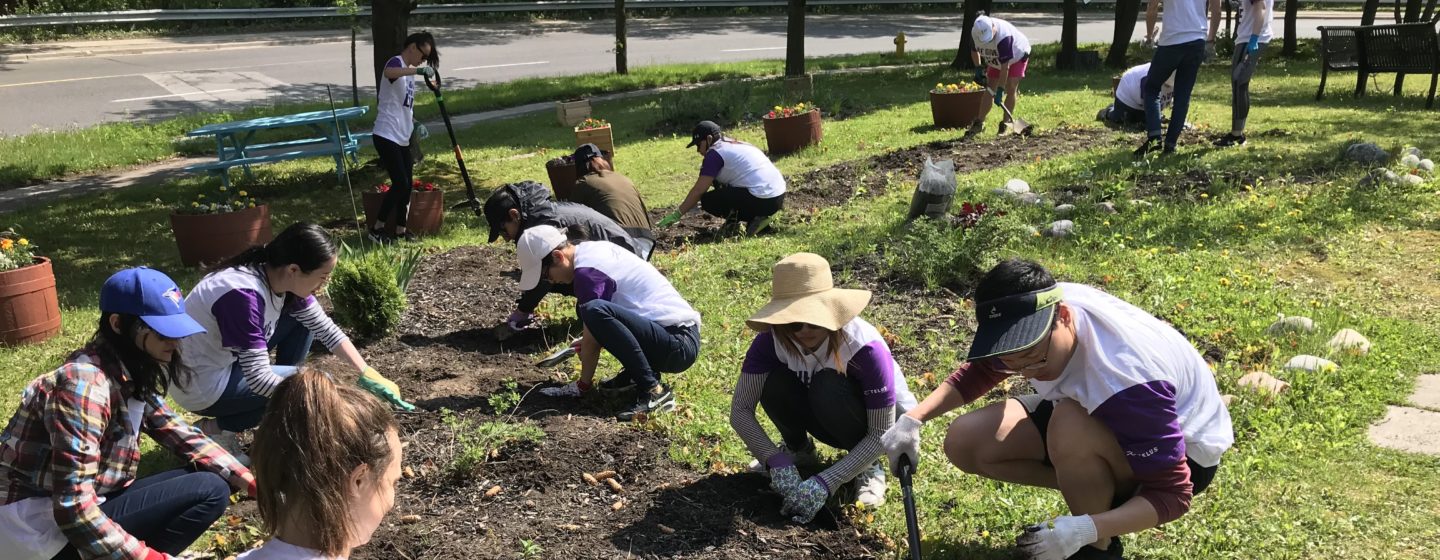February 28, 2019

These days, a trip to the mailbox is typically a ho-hum affair. Bills. Two-for-one pizza flyers. More bills. But this spring, eco-minded TELUS team members across Canada received something special from WWF-Canada: a packet of native plant seeds with step-by-step instructions on how to transform their green spaces into habitats for wildlife.
Growing native plants is just one of the hundreds of volunteer opportunities TELUS employees, friends, families and partners can do to make a difference in their community during the company’s Days of Giving campaign. Some pitch in at their local food bank. Some do shoreline cleanups. This year, nearly 1,000 participants signed up to receive seed packets and begin reclaiming lost habitat – the highest engagement since TELUS first partnered with WWF on this activity three years ago.
As the presenting sponsor of WWF-Canada’s Go Wild Community Grants and volunteer program, TELUS is passionate about supporting initiatives that get people involved in protecting Canada’s ecosystems. It’s no surprise to see so many of its employees eager to put on their gardening gloves. Plus, gardening for wildlife is an activity that can fit in the busiest of schedules and the smallest of green spaces.
“Everyone has busy schedules and finding the time to volunteer can be difficult,” says Ian Himelfarb, TELUS Days of Giving Coordinator. “[But] it’s really easy for someone to grab the seeds and plant them and make an impact for wildlife that depend on native plants.” Once planted, individuals can forge an even deeper connection with nature by tending to the growing plants and managing weeds around them.

That impact of a single native plant is huge. Whether it’s bee balm for ruby-throated hummingbirds or black-eyed susans for other pollinators, native plants provide much-needed food and habitat for birds, butterflies, bees and other important species. When enough of us grow gardens rich in native species, we can create interconnected wildlife corridors in urban environments where a lack of natural habitat is pushing wildlife out. This will reduce habitat fragmentation and allow pollinators to move more easily between plants.
To help TELUS volunteers create wildlife habitat WWF-Canada sourced native plant seeds from local ecozone-specific nurseries, with each pack containing a unique mix of native plants suited to and sourced from the ecozone they live in.
For example, folks in Drumheller, Alberta (The Prairies ecozone) received northern goldenrod and prairie smoke, while packets destined for Montréal (Mixedwood Plains ecozone) contained butterfly milkweed and New England aster.

Thanks to TELUS volunteers, gardens from North Vancouver to Montréal are helping wildlife thrive (and for every hour those volunteers spend cultivating their native seeds, TELUS donates a dollar to a charity of their choice.)
“It’s great working for a company that cares so much,” Himelfarb says.
Want to take action for nature? Here’s how:
- With your organization: Join Living Planet @ Work or sign-up to our newsletter for regular updates on business and conservation
- At home: If you live in southern Ontario’s Carolinian zone, join In the Zone to grow your own backyard habitat.
- In your community: Become a Wildlifer and take part in conservation actions near you.


